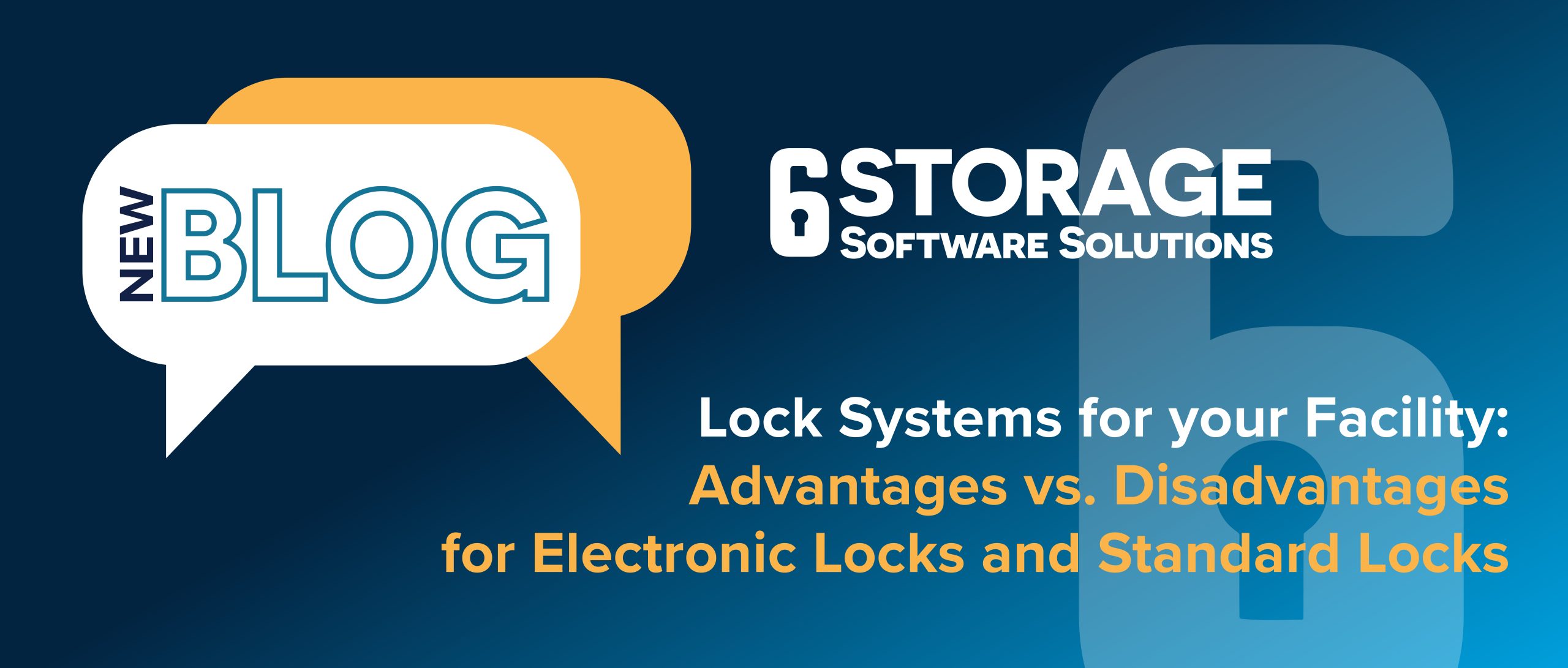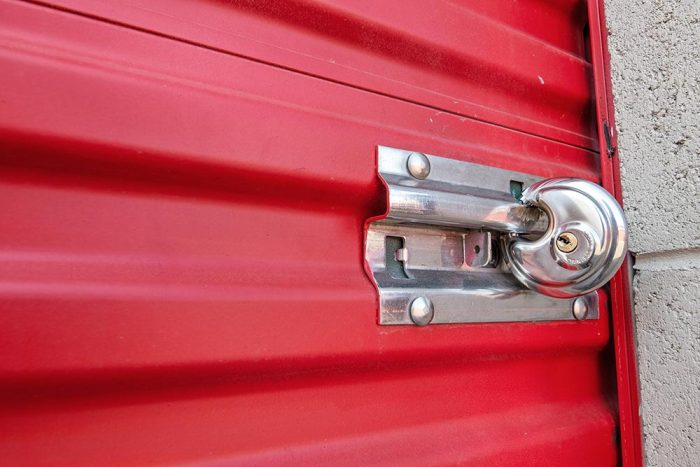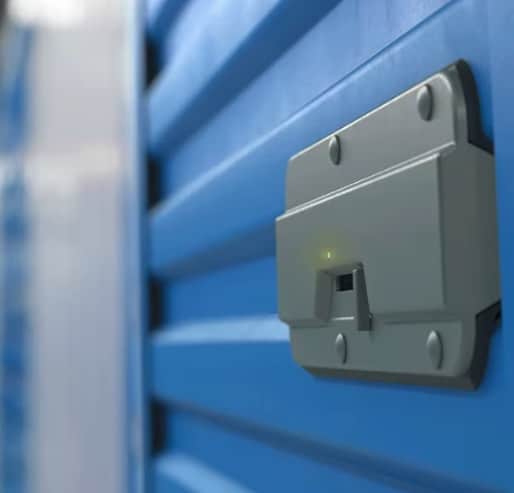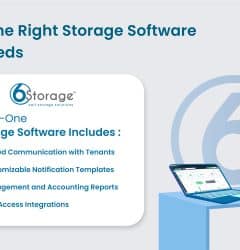03 Apr

Security is a top priority for any self-storage facility, and choosing the right type of lock is essential to protecting customers’ belongings. Traditionally, storage facilities have relied on standard locks, such as padlocks and cylinder locks. However, electronic locks have emerged as a high-tech security solution, offering enhanced protection and convenience for self-storage operators.
6Storage is integrated with some of the best third-party lock companies in the self-storage industry. All you must do is decide which lock system is the better choice for your storage facility. In this blog, we’ll break down the advantages and disadvantages of both electronic locks and standard locks to help you make an informed decision—plus spotlight some trusted brands like Defense2, Noke, Onity, and DaVinci Locks that are shaping the future of self-storage security.

Standard Locks: The Traditional Choice
Standard locks for self-storage include padlocks, disc locks, and cylinder locks that require a physical key. These locks have been used for decades and are known for their affordability, simplicity, and reliability. One popular example is the Defense2 Stainless Steel Disc Lock—widely trusted for its durable design and resistance to bolt cutters, making it a solid choice for traditional, key-based security.
Advantages of Standard Locks
- Cost-Effective Security – Standard self-storage locks are inexpensive and require no additional technology.
- User-Friendly – No apps, batteries, or digital systems—just a simple key or combination.
- Easily Replaceable – These locks can be purchased at hardware stores, making replacements quick and hassle-free.
- No Power Dependency – Works even during power outages or system failures.
Disadvantages of Standard Locks
- Key Management Challenges – Lost keys or forgotten combinations can cause issues for storage facility tenants.
- Security Risks – Standard locks are more vulnerable to lock picking, bolt cutters, or key duplication.
- Limited Access Control – No way to track access or restrict entry remotely.
- On-Site Maintenance Required – Staff must be physically present to assist locked-out tenants or cut locks when needed.

Electronic Locks: The Smart Upgrade
Electronic storage locks eliminate the need for physical keys, using keypads, Bluetooth, or mobile apps for access. These locks can integrate with a self-storage facility’s access control system, providing remote management and real-time security tracking.
Innovative solutions like the Noke Smart Entry System offer mobile-based access with Bluetooth technology, allowing tenants to unlock units with their smartphones while providing managers with centralized access control. Similarly, Onity’s Passport system brings a hotel-grade level of smart access to self-storage, with cloud-based management and audit trails for every entry. Meanwhile, DaVinci Locks stands out with a wireless, keyless locking system that can be remotely assigned to tenants, removing the need for on-site lock installations or removals.
Advantages of Electronic Locks
- Enhanced Security – More resistant to tampering, break-ins, and unauthorized access.
- Keyless Entry – No lost keys or duplicate copies—tenants can enter using a PIN, smartphone, or access code.
- Remote Access Management – Facility managers can grant or revoke access remotely, improving security.
- Access Tracking & Monitoring – Digital logs provide records of who accessed a unit and when.
- Seamless Integration – Works with self-storage management software, automated gates, and surveillance systems.
Disadvantages of Electronic Locks
- Higher Upfront Cost – Smart locks for storage units can be more expensive to install and maintain.
- Power & Connectivity Dependence – Some electronic locks require Wi-Fi, batteries, or a backup power source.
- Learning Curve for Tenants – Some customers may find digital access systems confusing.
- Potential Tech Issues – System failures, app glitches, or poor internet connectivity could temporarily restrict access.

Which Lock is Right for Your Storage Facility?
Choose Standard Locks if:
- You manage a smaller storage facility and need an affordable, low-maintenance solution.
- Your customers prefer a traditional key-based access system.
- Your facility is in an area where power outages or connectivity issues are common.
Choose Electronic Locks if:
- You want enhanced security, remote access control, and digital tracking.
- You operate a large or high-traffic self-storage facility where monitoring access is crucial.
- Your facility uses smart management software, automated gates, or cloud-based security systems.
While standard locks remain a reliable and cost-effective choice, electronic locks—especially systems like Noke, DaVinci Locks, and Onity’s Passport—provide advanced security, convenience, and access control. For those seeking robust physical security without digital complexity, the Defense2 Stainless Steel Disc Lock remains a trusted standard. As technology advances, many self-storage operators are upgrading to smart locking systems to improve security and streamline facility operations.
No matter which option you choose, be sure to tell these partners that 6Storage sent you. Schedule a demo today to see how 6Storage integrates with access systems like these!






